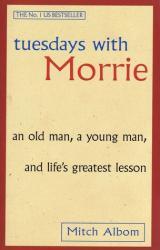
Tuesdays with Morrie is the most moving and sentimental novel I have ever read. The first person narrative told by the author Mitch Albom, walks through Albom’s life changing journey with his old college professor, Morrie. Albom spends a series of Tuesdays learning from Morrie, who had been diagnosed with ALS and has a very limited time to live. In this true story Morrie Schwartz speaks valuable truth and offers insight into what is important in life and why he wasn’t scared to die. My favorite quote from the novel is “Once you learn how to die, you learn how to live.” Tuesdays with Morrie teaches all its readers how important everyday truly is, and how to not take life for granted.
Reviewer Grade:12
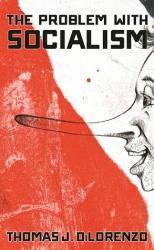
In this seemingly uninteresting yet brightly covered book lies an abundance of information. In just 192 pages, DiLorenzo is able to highlight what looks to be every possible problem with socialism. He does not just point out what he thinks to be problems, however. He then goes on to back up every argument made in this book with true, real life evidence or facts with credible sources, such as in the 1970s when Chile adopted socialism and destroyed it's own economy. To keep the sinking ship that was the economy going, Chile printed massive amounts of money and kept it's destroyed economy going (barely). At times this book can get a bit technical, but that can be expected of most nonfiction novels. Overall, this book was an very informational read and an eye opener on the problems with socialism and the people who support it.
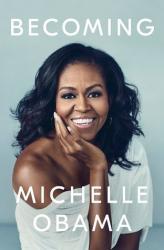
Fantastic memoir about the life and times of Michelle Obama, from her early upbringing in South Side Chicago to her time as First Lady. I loved the descriptive quality of her experiences and was amused by the meeting and falling in love with Barack. The anecdotes of life in the White House were particularly interesting. I would recommend listening to this book instead of reading it, if possible, as she is the narrator.
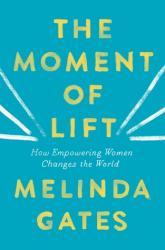
Wow. This book was so much better than I expected. I normally don't like this type of nonfiction, but it was powerful and the premise that societies are improved when women are lifted up was a sound one. I hadn't thought about the importance family planning plays regarding the health of women, families, and societies. So interesting. Gates tells the story of a village in Africa where the women walked 10 miles one way to get water, and then had to raise a large family on top of it. One of the women asked her husband to get the water instead and he did. Then he got a bicycle to get there faster, and then the men in the village invested in a well in their village. Talk about change when women are helped up instead of trampled down. Thumbs up!
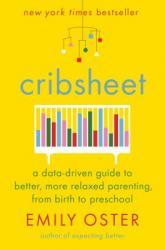
As a new parent and an engineer, I am skeptical when so much advice about raising a baby comes from hearsay or anecdotal evidence. So many controversial topics abound in the early years of a child’s life that I wanted to make sure I was basing my decisions off the scientific data instead of mere wives' tales. Fortunately, Cribsheet: A Data-Driven Guide to Better, More Relaxed Parenting, from Birth to Preschool exists. Unfortunately, it has merely proven to me that there haven’t been enough rigorous studies to show any causal relationships to make my parenting decisions any easier.
Similar in the tactics of Zero to Five (whose author was a science journalist), Cribsheet takes the experience of an economist and pits it against the studies that have been performed to determine which of them are legitimate enough to be trusted. In most cases, it seems that plenty of research into the benefits and detriments for children (and parents) merely comes down to broad Gaussian distributions. That is, there are no correlations between two drastically different approaches on the outcome of the child’s health or future behavior. This is undoubtedly a relief to know, if for no other reason than to give me free rein to parent as I see fit (with my wife's input, of course).
One mantra that Cribsheet seems to reiterate is that—even if data supports a beneficial outcome—if the parents’ mental health issues and/or anxiety increase because their lifestyle cannot support it is not worth the small percentage points of benefit to the child. Basically, the studies that do support something like breastfeeding show that these desired outcomes are in the short term and won’t harm the child if this particular parenting method isn’t chosen. While the data absolutely supports one or two items of interest, everything else is so loosely researched as to prove nothing in one way or another.
A great book about statistical rigor in childhood studies, I give Cribsheet 4.0 stars out of 5.
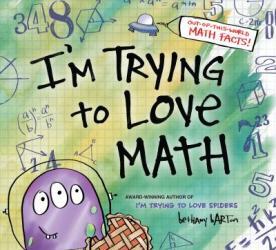
Using abundant humor, Bethany Barton makes this book about math interesting to all. Her facts and explanations show how math is used in our everyday lives and why it’s important. Math is used all around the world and even in space. We used math when we bake cookies, make music, and explore. It’s part of many of the patterns we see in nature. Since math is part of so many of the things you already love, you may just already love math.
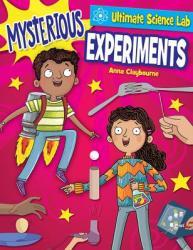
There’s nothing magical about these experiments – just everyday science. Experiment with raisins, sugar cubes, eggs, and more. You can just use simple materials that you already have around the house to test things out and learn something too.
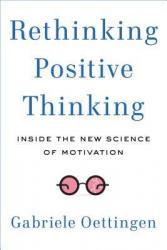
In her book, Ms Oettingen teaches readers how to use the science of positive thinking to their advantage. After years of research, she has found that mere "positive thought" does not produce optimal results for people's lives. Instead, a specifically targeted approach to positive thought and positive action is best. This is what she teaches readers. I would recommend this book to people seeking to improve their lives through targeted approaches of thought and action. Readers 16 and up are appropriate.
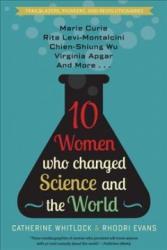
In her book, "10 Women Who Changed Science and the World", Catherine Whitlock authors the biography of ten women who were deeply influential in science. For each woman, she writes a biography of their life and what significant contribution they made to their field. This book is well-written and informative, and neither too long nor too short for each woman's biography. I would recommend this book for readers of ages 13 and up. This book should interest those interested in women's contributions to science.
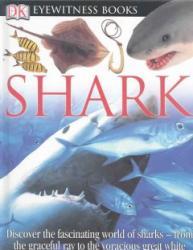
In her book about sharks, Ms Macquitty teachers readers all about the fascinating salt-water creatures. The book is well done for young ages, with plenty of interesting facts. There are also many pictures to illustrate her points. Well researched and informative, this book is sure to engage young readers.
I would recommend this book to any young readers from 5 through Elementary school. Any children fascinated with sharks and wishing to learn more will be pleased by this read.
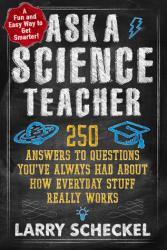
In his book "Ask a Science Teacher", Larry Scheckel lists 250 science questions and answers them all in detail for readers. Each series of questions is divided under sections. For example, there is a section about Sound and Music and a section about Chemistry. He spans a broad range of scientific topics, from biology in the question "How many cells are in the body?" to history of science in question "Did Issac Newton develop calculus?" Mr. Scheckel answers the questions thoroughly with interesting detail. He engages readers. I would recommend this book to anyone with science interests and questions. This book is appropriate for ages high school and up.
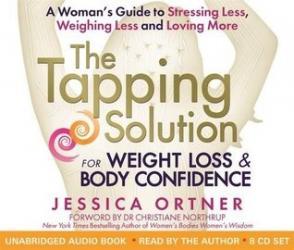
In her book “The Tapping Solution For Weight Loss and Body Confidence”, Jessica Ortner guides readers through a step-by-step process for not only losing weight but also for increasing self-compassion and thus increasing self-confidence and self-esteem. Tapping, also known as EFT (emotional freedom technique), is a method of lowering cortisol levels in the body. By tapping on specific meridian acupressure points on the face, neck, and underarms while describing the issue or stressor, it has been scientifically proven that the brain re-wires and cortisol reduces. In her book, Ms Ortner not only teaches readers how to tap in order to aid weight loss, since low cortisol levels have been linked with greater weight-loss success. She also helps readers to learn how to be more self-compassionate in their weight-loss journey, thus decreasing stress and increasing self-confidence.
I enjoyed this book for its positive message to women to be confident in who they are at this and every moment of life, even within the challenges we face. I would recommend this book to readers from ages 16 and up, especially young women or women looking to increase their self-compassion.
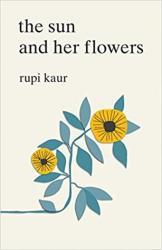
The Sun and Her Flowers is a book filled with relatable poetry. The poems are mainly focused towards a female audience, and bring to light the realities and harshness of life. The book has three parts that are based on the flowers, blooming, withering, and rebirth. The poems follow those specific categories with happy, sad, and hopeful poems centered around it. The poems are also centered around heartbreak and love, some of the poems share lovely scenes of first dates; where others are tragically centered around heartbreak. Poems of heartbreak talk of crushes not sharing love for the other, and relationships that took a turn. The poems are easily relatable to teenagers and the daily struggle of their lives. I gave this book a high rating because it not only made me laugh and smile but it also moved me to tears several times throughout, the poetry is touching on an outstanding level.
Reviewer Grade: 12
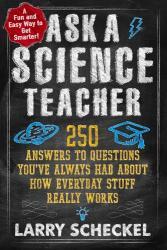
In his book "Ask a Science Teacher", Larry Scheckel lists 250 science questions and answers them all in detail for readers. Each series of questions is divided under sections. For example, there is a section about Sound and Music and a section about Chemistry. He spans a broad range of scientific topics, from biology in the question "How many cells are in the body?" to history of science in question "Did Issac Newton develop calculus?" Mr. Scheckel answers the questions thoroughly with interesting detail. He engages readers.
I would recommend this book to anyone with science interests and questions. This book is appropriate for ages high school and up.
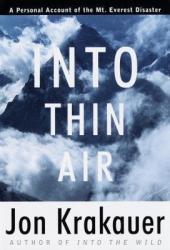
Into Thin Air is a narrative story of the author and climber, Jon Krakauer.
He establishes that ever since he was a kid, climbing Mt. Everest was his dream. He later accomplishes his ambition down the line, but with more consequences than anything rewarding.
Into Thin Air uses a consistent tone of language to identify whether the situation represents relief or tension. This gathers more intensity for those who are interested in thrillers and adventurous stories. The narrative offers a variety of twists and turns throughout the plot in order to continue the use of curiosity and unpredictability of the end. The story is very interesting, and builds upon every single detail, from the start until the end of the book.
Reviewer Grade: 11

In her book 'Thank and Grow Rich', Pam Grout introduces readers to the benefits of practicing gratitude. While practicing gratitude does not, as Mrs. Grout states, make readers physically rich, the scientific benefits are vast. Outlining these benefits of increased health, greater happiness, and thus a more fulfilling life, Mrs. Grout encourages readers to join in the practice of gratitude.
This is a lovely book celebrating the practice of giving thanks. Filled with experiments and applications of gratitude, this book is very user-friendly. I would recommend this book to readers looking to improve their positive-thinking and gratitude habits. Ages 14 and up are appropriate for reading.
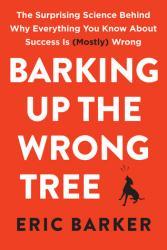
In his book Barking Up the Wrong Tree, Eric Barker explains secrets to success in many areas of life. Using the latest in scientific research, he explains how to "find work-life balance using the strategy of Genghis Khan, the errors of Albert Einstein, and a little lesson from Spider-Man", how to lower stress and increase self love, and move through life more happily
Among other lessons, Mr. Barker teachers readers why most of what they previously believed about success is "wrong". Then he goes on to explain how they can improve themselves and their lives through lessons provided by unlikely - but entertaining - sources.
I would recommend this book to anyone looking to improve success in their lives. It is an excellent, helpful, and humorous read that will be good for any age range 16 and above.
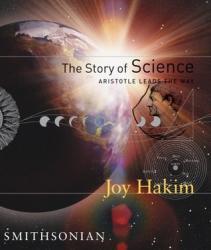
In her three book series, the Story of Science, author Joy Hakim introduces readers to the fundamental concepts within science and its history. Through creative narration, Mrs. Hakim captivates readers and makes learning interesting. By introducing the basic concepts of science through the eyes of a number of famous scientists, she helps learners to comprehend the scientific concepts while also enjoying the experience of reading.
Mrs. Hakim is a wonderful author. Her books convey a good knowledge of the subject with creativity in presentation. I would recommend this book to readers ready to learn an overview of science and its history.
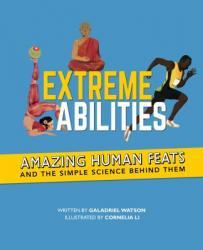
Read this book to learn about the science behind a variety of amazing feats! Do you want to learn about super strength? What about speed demons? These abilities and many more, and showcased and explained in this book. You’ll be astounded and learn something too. You can also test your abilities on some of these feats.
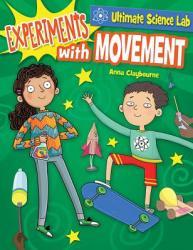
Check out the amazing experiments in Experiments with Movement by Anna Claybourne. You’ll learn to use everyday materials to make things fly and zoom! You’ll learn the basics of how things move, the basics of vehicle transportation. You’ll also be environmentally friendly as you reuse and recycle materials. Will you make a balloon-powered car, an air-powered rocket, or maybe an air blaster? Check out this book and get started!


